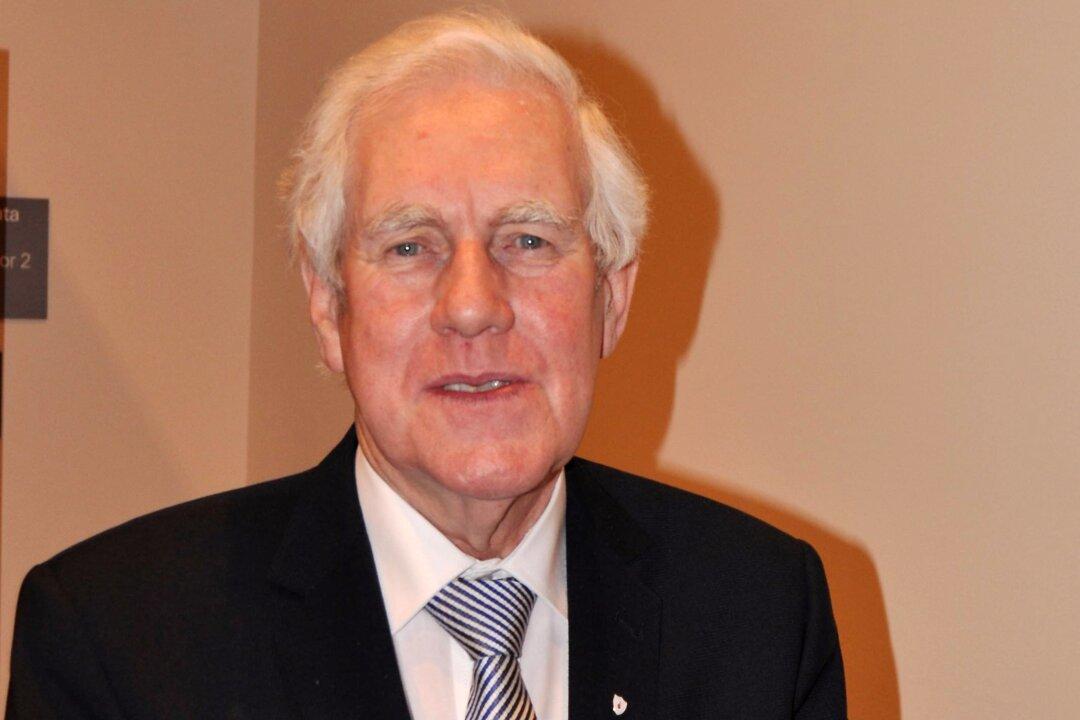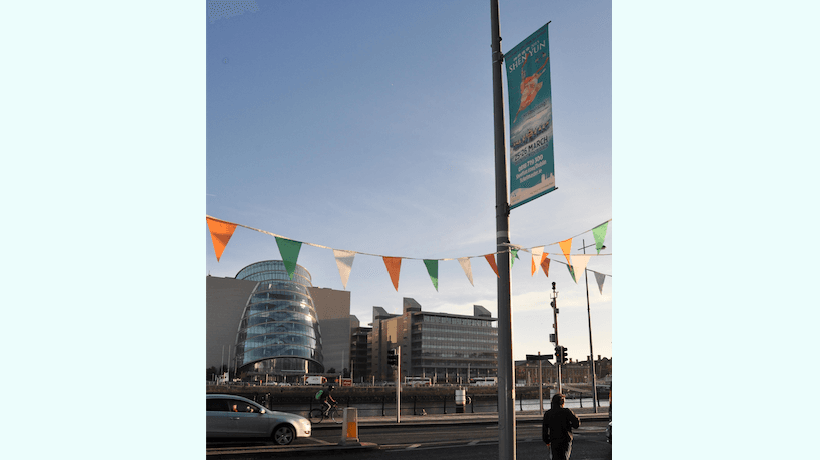Since its inception in January 2006, Pieta House’s vision of providing suicide and self-harm support services within 100 kilometres of everyone in Ireland has almost been realised.
“Well, we are almost there—we have 9 centres, and we only need to build three more and then we have achieved that vision,” said Joan Freeman, founder and CEO on the journey to-date.
“We have also been asked by the New York Irish Immigrant Centre to look at the possibility of having a Pieta in New York which would not only look after the Irish but other people over there,” said Ms Freeman, adding that America would be very slow with respect to tackling suicide. “They are much further back than we are because they would still see suicide as a stigma, and for lots of other reasons. They are very reluctant to do anything about it.”
Pieta House services are free of charge: you don’t need a doctors’ letter or a psychiatric report to avail of them—just make the phone-call or someone can make it for you.
“What happens then is that you are assessed to see what risk you are, and also to assess to see if we are the right service for you. Then one is assigned to a therapist, who provides 15 sessions and that is usually done over a very quick period of time, patients are seen a minimum of twice a week, they are seen every day if necessary depending on how high-risk they are.
“You would generally have to pay for such health services in America, for example. Which means especially for un-documented Irish immigrants, they have no access to health facilities whatsoever—including mental health facilities. So again this is another reason why we are thinking of looking into that,” explained Joan.
Rebecca Skedd, a Social Care Manager at the New York Irish Centre, explained why they had invited Pieta over to New York this September. “Why we’re interested is simple really: we are a strong Irish community centre, and our ambition is to assist all our fellow Irish people living here in New York. As with any place, needs vary: however, we aim to meet these needs as best possible.
“Suicide, unfortunately, is an increasingly worrying problem in Ireland, and we have seen a rise in numbers here too. This has led us to adopt the Awareness Initiative,” said Ms Skedd. As Social Care Manager, she has organised hosting a variety of events, and last month they held a QPR (Question, Persuade, Refer) Workshop in the centre. “The idea of this workshop is to train your everyday people to be able to identify the risks and warning signs of depression and suicide. It then gives them the knowledge and opportunity to act accordingly, before it’s too late,” she said.
This week, in light of World Suicide Prevention Day, the centre is hosting an open house night which will include guest speakers, a candle-lighting ceremony, and the release of a white balloon. “We are taking this day as an immensely valuable opportunity to create awareness and let the community know that we are here to listen, to talk, and to help them on their journey to a better place. Happiness can blossom simply from finding new hope, and we aim to spark that connection. For some people the candles and balloon will represent hope and desire, for others they may act as a tribute to someone they have lost to suicide, and for the rest they will represent an act of kindness, consideration, and support,” said Ms Skedd.
Commenting on Pieta House, Ms Skedd concluded by saying, “Joan Freeman is inspirational, and the work that Pieta House are doing right across the country [Ireland], well, words can’t even describe how passionate and supportive I am of these people.”
The Pieta Story
Joan Freeman worked as a psychologist for a private counselling practise and, at that time, she felt that it was quite obvious that there were gaps in services, especially in those to do with suicide and self harm.
“Up until we started, if you were suicidal or self-harming you actually had to go to A&E, and it was viewed as a mental health issue. Whereas in reality, for most people who attempt suicide, it’s more than likely they don’t have a history of mental health issues, but they are actually reacting to a life event.
“So it was important to plug that gap and to offer a service that’s free of charge to people who are in emotional distress. With great difficulty, I can assure you, I researched it first of all for a couple of years: What was the best way of handling people who were in suicidal distress, where would they like to go—all this type of research. A therapeutic model was created based on some of the best models around the world where a solutions approach is taken and a strength-based approach also, so all that took about two years,” explained Ms Freeman.
On the 19th of January, 2006, she opened Pieta in Lucan with a staff of two full time and four part-time staff. “At the time my husband and I borrowed 130,000 euro to get started, and we used and are still using our home as collateral.” Eight years later they have nine centres and a staff of 180, and it has taken off extremely well.
“When the recession hit Ireland a few years ago the suicide rates went up immediately. Which proves my point that a lot of people just react to a life event and go on to take their lives,” said Freeman.
According to her, 10 people in Ireland die every week in Ireland by suicide and 8 are men, and there are two tipping points for men that might cause them to take their life. One is anything to do with work, whether they are unemployed, redundant, or retired, or their business has folded. The second tipping point is the ending of a significant relationship through either death or a break-up. “While these events could certainly lead to depression, what we are talking about is a really speedy reaction to life events, we are talking about over a period of weeks. Where someone can really see no future and can’t see an end to the problem, until they go on to take their lives.”
Funding
Freeman says Pieta is funded to 90 per cent by the general public through fundraising. When they went through the recession, not only were they able to survive because of the mood of the public, but they thrived. “So we rely heavily on the public, our overheads will be 4.5 million this year, approx. 10 per cent of which we receive from the HSE.”



